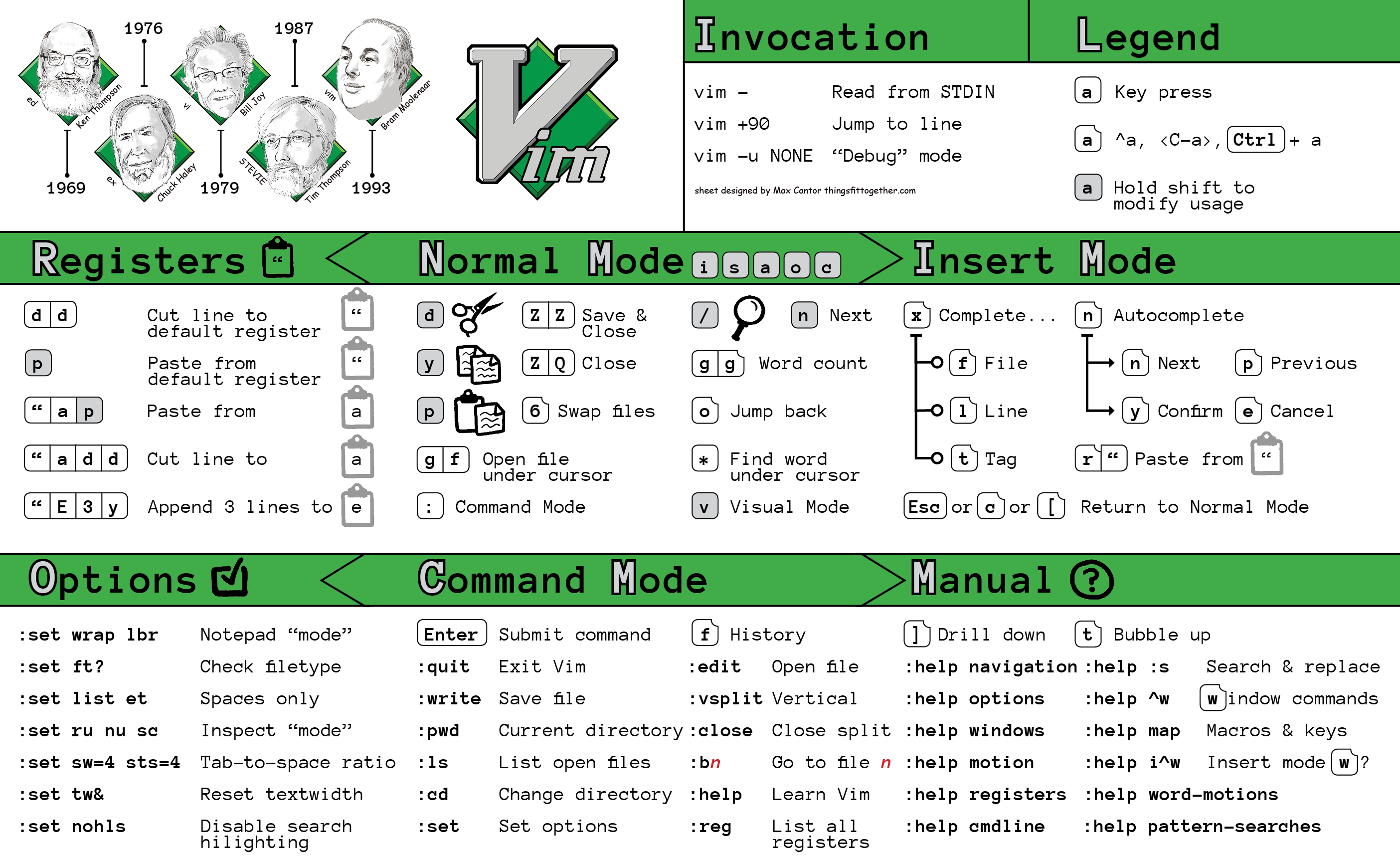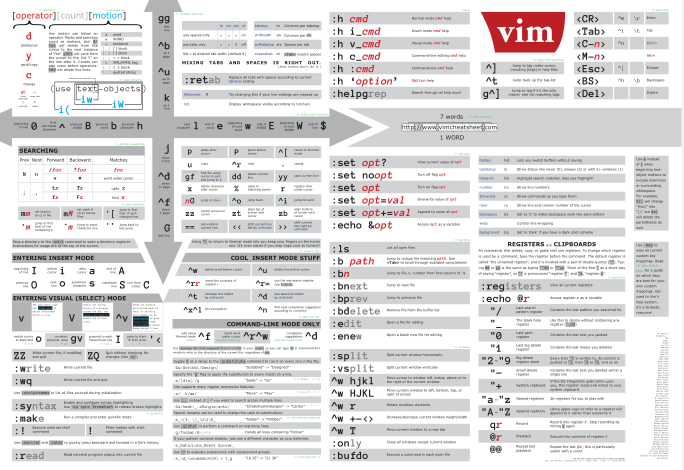Ecosyste.ms: Awesome
An open API service indexing awesome lists of open source software.
https://github.com/changemewtf/no_plugins
"Slides" and supplemental info from my August 3rd 2016 NYC Vim talk
https://github.com/changemewtf/no_plugins
Last synced: 23 days ago
JSON representation
"Slides" and supplemental info from my August 3rd 2016 NYC Vim talk
- Host: GitHub
- URL: https://github.com/changemewtf/no_plugins
- Owner: changemewtf
- Created: 2016-08-03T22:57:29.000Z (over 8 years ago)
- Default Branch: master
- Last Pushed: 2023-02-15T05:01:23.000Z (about 2 years ago)
- Last Synced: 2024-11-29T19:45:48.512Z (3 months ago)
- Language: Vim Script
- Size: 7.81 KB
- Stars: 1,042
- Watchers: 22
- Forks: 131
- Open Issues: 3
-
Metadata Files:
- Readme: README.md
Awesome Lists containing this project
README
# How to Do 90% of What Plugins Do (With Just Vim)
This is a supplementary repository for my August 3, 2016 talk
[How to Do 90% of What Plugins Do (With Just Vim)](https://www.youtube.com/watch?v=XA2WjJbmmoM).
You may also be interested in my Vim cheat sheets:
Basic ([Digital](https://thingsfittogether.com/product/vim-basics-cheat-sheet-digital-download/) | [Print](https://thingsfittogether.com/product/vim-cheat-sheet-basics-print/)):

Advanced ([Digital](https://thingsfittogether.com/product/vim-cheat-sheet-basics-print/) | [Print](https://thingsfittogether.com/product/vim-cheat-sheet-advanced-print/)):

# Summary
## Fuzzy File Search
When moving to another buffer with `:b`, hit tab to autocomplete, or
simply hit Enter to go to the first buffer with a unique match to what you
have already typed.
By adding `set path+=**` and `set wildmenu` to the vimrc, we are now
able to hit `Tab` when running a `:find` command to expand partial matches.
Another asterisk (`*`) can be placed in the query to return fuzzy/partial matches.
## Tag jumping
First, download and run `ctags` in your project directory like this: `ctags -R .`
Make sure your Vim working directory is in the same directory as the `tags` file
that gets generated.
Now, you are able to use `^]` to jump to a tag under the cursor, `g^]` to get a
listing of all matching tags, and `^t` to jump *back* up the tag stack.
## Autocomplete
Vim has plenty of ways to do autocomplete. The best is `^n` which works out of the box
according to the `complete` option. Use `^p` to go back in the suggestion list,
`^y` to accept the current completion choice, and `^e` to cancel out of the autocompletion
dialog to return to your text without making a selection.
There are also a number of other autocomplete features prefixed by `^x`:
- `^x^n` to search within the file
- `^x^f` to complete filenames (works with `path+=**`!)
- `^x^]` to complete *only* tags
And more! `:help ins-completion` for a full listing.
## File Browsing
Vim ships with a builtin file browser called NetRW. To use it, just run `:E`.
## Snippets
Here's an example of a minimal snippet command you can put in your vimrc:
```vim
nnoremap ,html :-1read $HOME/.vim/.skeleton.html
```
Assuming that your home vim directory contains a text file called `.skeleton.html`,
which contains (for example) an empty HTML document, this mapping will insert
a copy of the text file in the current file when you type `,html` in normal mode.
## Build Integration
See the bottom of `no_plugins.vim` for an explanation of how to integrate Vim
with a simple Ruby RSpec build process (**warning**: this has not been updated
since 2016, so it probably does not work anymore).